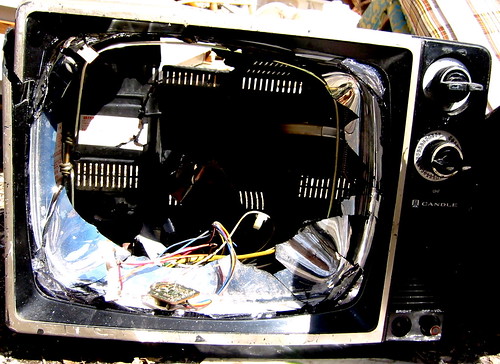By Guest Author Hannah Schultz
 Somewhere, someone desperately aspires to be a cast member on “The Real Housewives of Orange County”. Another alters his/her hair and tan like the stars of “Jersey Shore” in hopes of earning a spot on the next season. Oh, to be the next quasi-famous reality star! Reality television has indisputably opened the doors for regular folk who want to attain celebrity-type fame.
Somewhere, someone desperately aspires to be a cast member on “The Real Housewives of Orange County”. Another alters his/her hair and tan like the stars of “Jersey Shore” in hopes of earning a spot on the next season. Oh, to be the next quasi-famous reality star! Reality television has indisputably opened the doors for regular folk who want to attain celebrity-type fame.
But what do you do if you want the fame, but can’t get cast on the big screen? The Internet is the next best source, as many “YouTubers” have discovered. American consumers support these relatively new forms of entertainment simply by watching them. Recent research has shown a strong correlation between behaviors displayed on reality television and the way people interact on Internet sites. Yes, your weekly viewing of “The Bachelor” may cause your daily “status updates” on Facebook.
With a total of 452 online surveys of undergraduate communications students, researchers concluded that a direct correlation exists between reality television consumption and Internet behaviors. Specifically, reality television has normalized blurring the lines between privacy and public visibility. A greater acceptance of what some might call intrusiveness and/or openness has prevailed in the mind’s of many people, particularly those in Generation Y. Reality television as a whole exhibits a value system that associates visibility with success. Internet users mimic this behavior by sharing their lives on sites like Facebook and YouTube.
YouTube reconfirms the idea that non-celebrities can become famous if enough people view their video. This study offers evidence that those who are heavy consumers of reality television disclose more of their personal thoughts and feelings on their online forums. This doesn’t mean that because you watch “The Bad Girls Club” you will become a raging drama fiend. Instead, the evidence here indicates that you will probably partake in more Internet sites that allow you to either achieve fame or share your feelings with a broad audience.
There was a time when reality television was a fleeting phase, and Internet sites such as YouTube were just getting started. Reality television, whether it has a trashy reputation or not, has taught us that sharing your personal life with the world will get you attention, and that it is the normal thing to do. With over 95% of college students maintaining online site profiles, it seems America is awfully attention hungry.
Stefanone, M., & Lackaff, D. (2009). Reality television as a model for online behavior: Blogging, photo, and video sharing. Journal of Computer-Mediated Communication, 14, p.964-987.